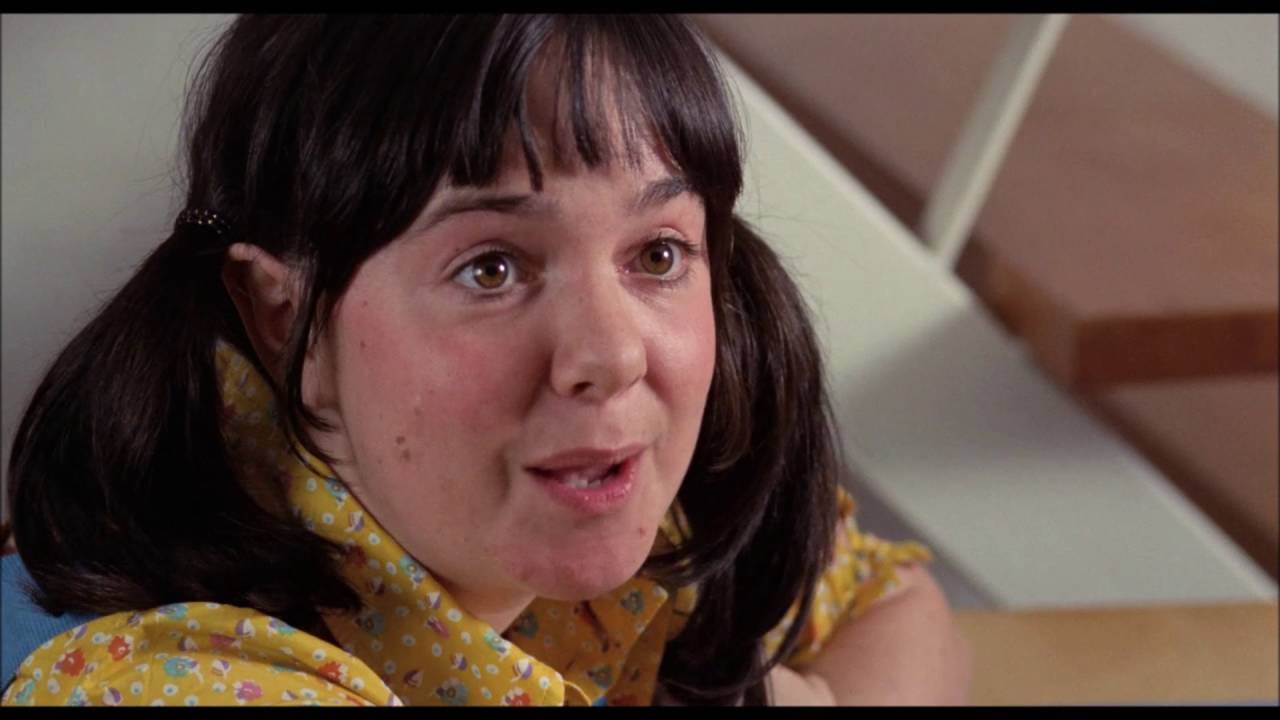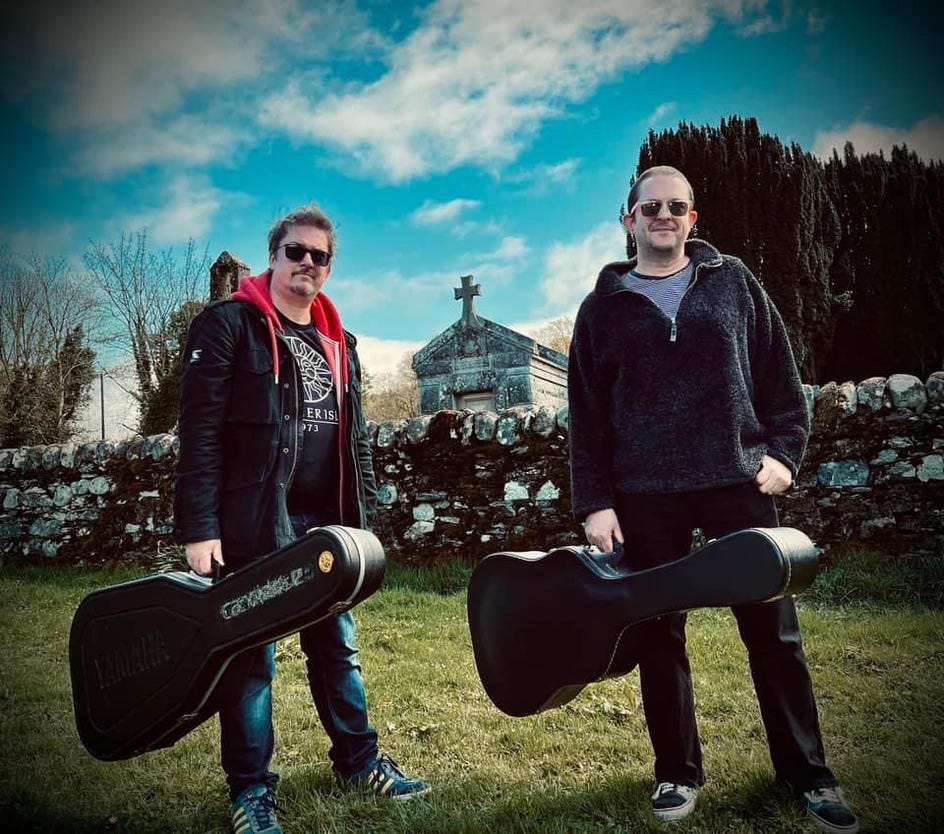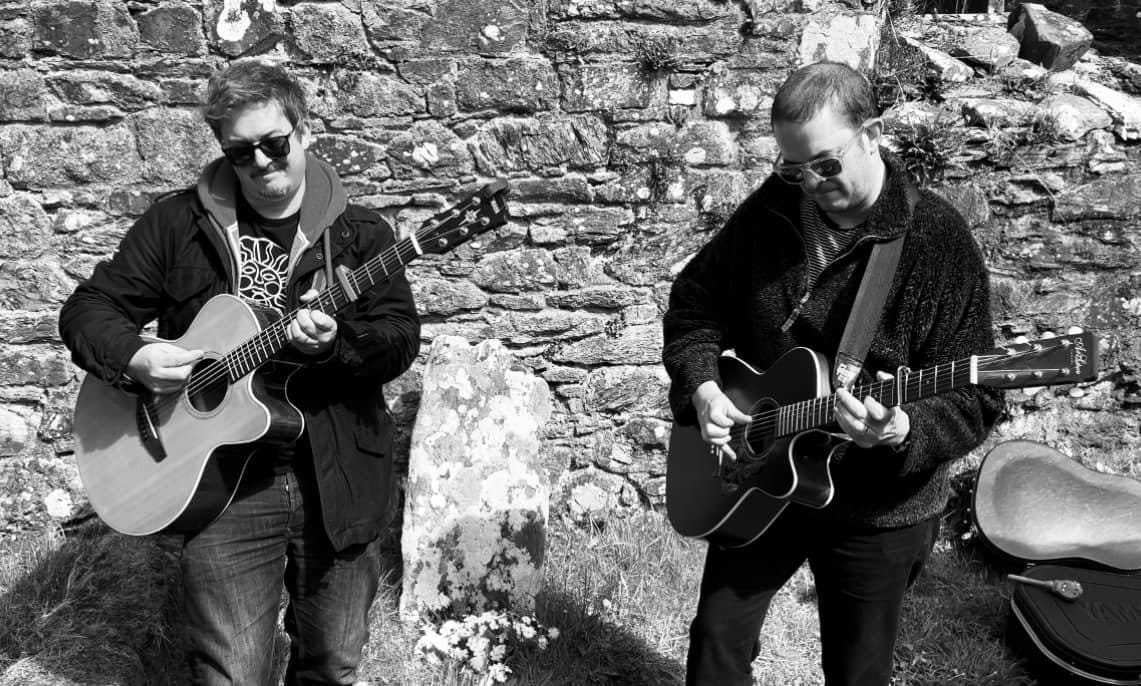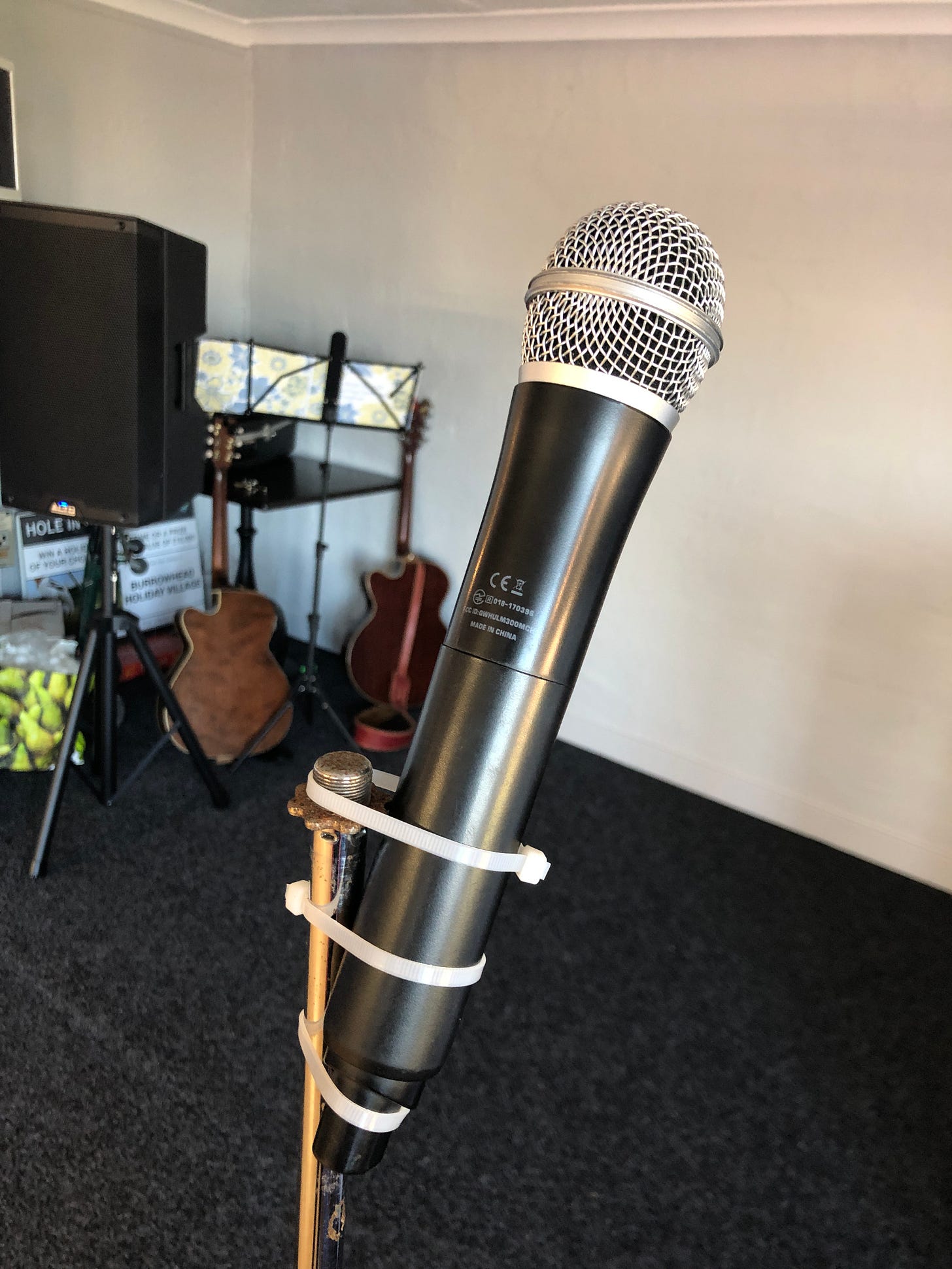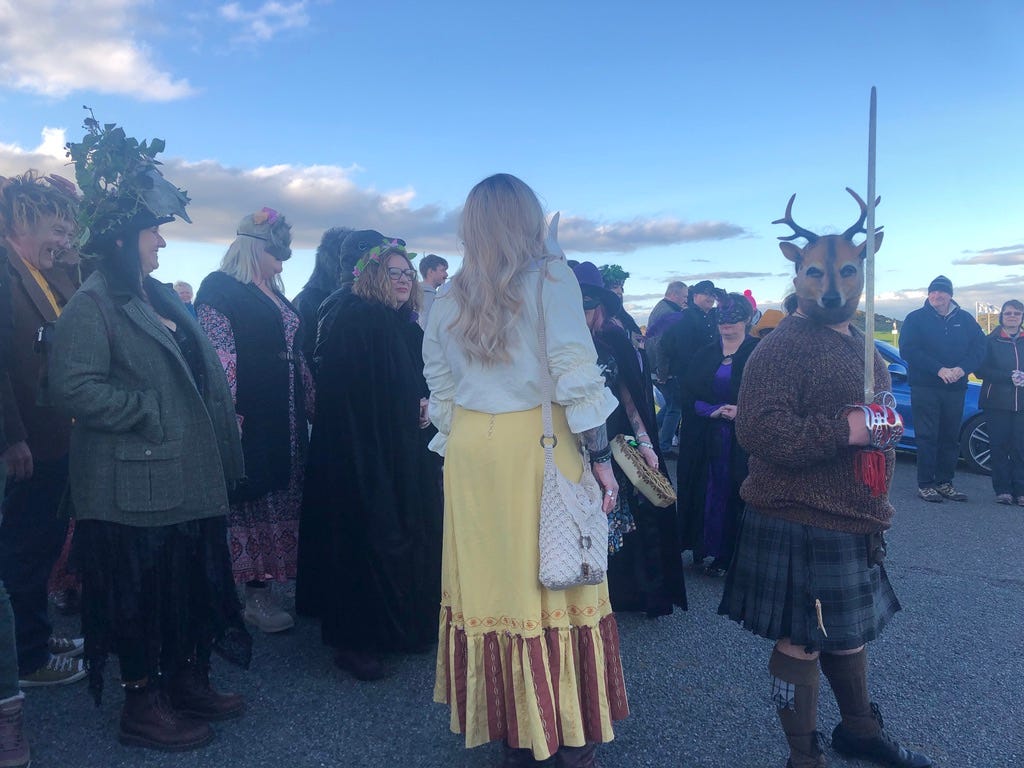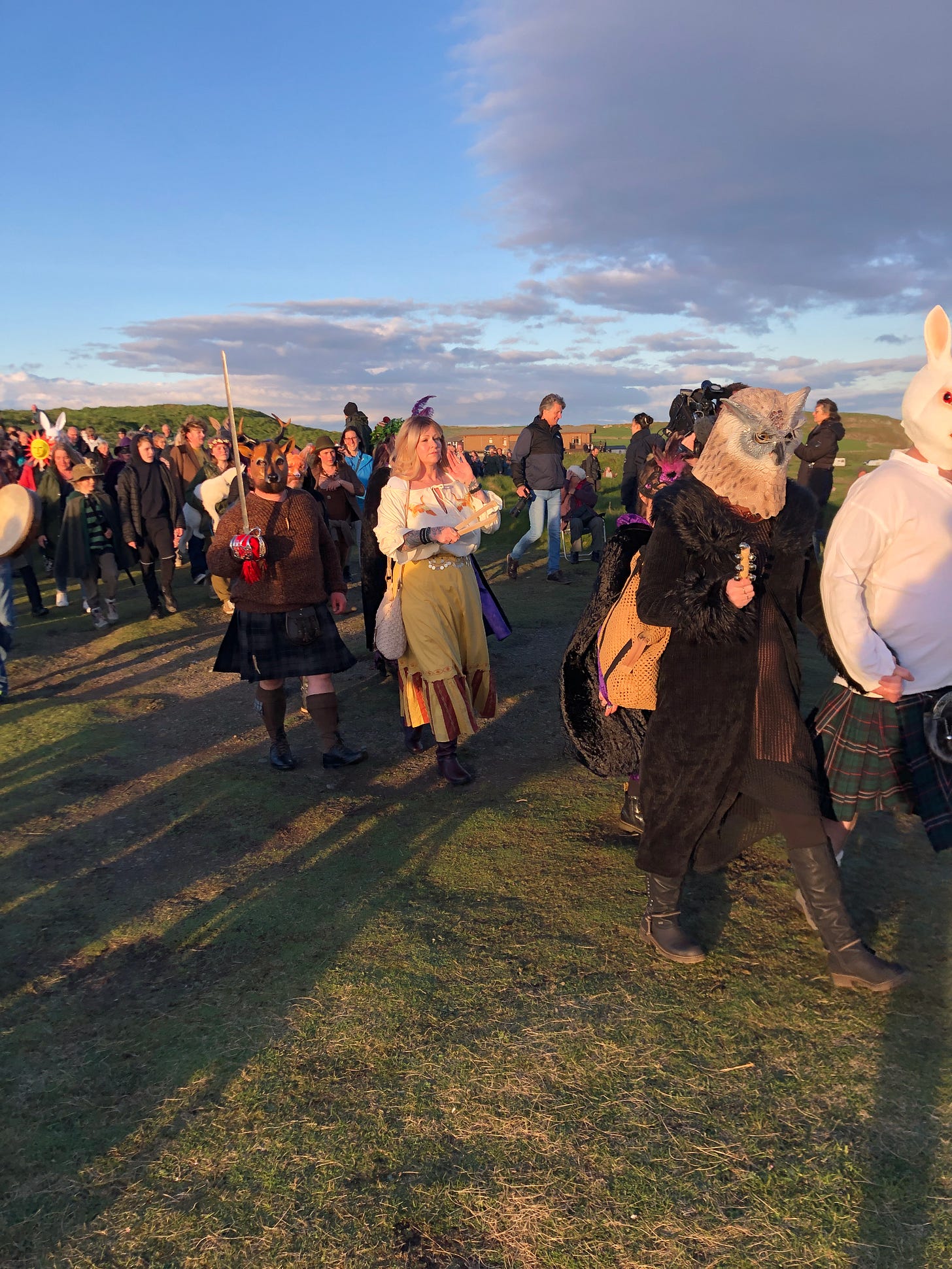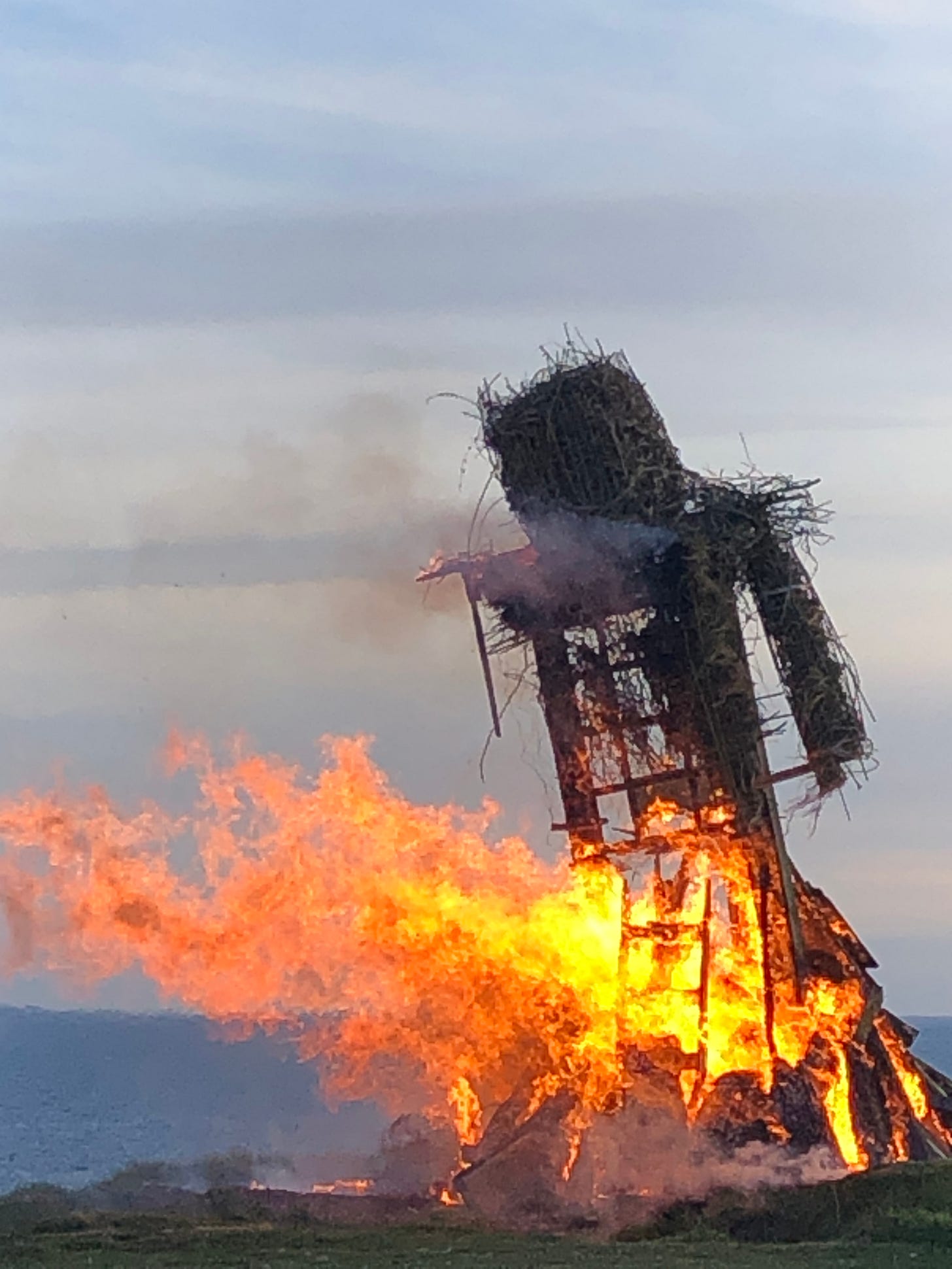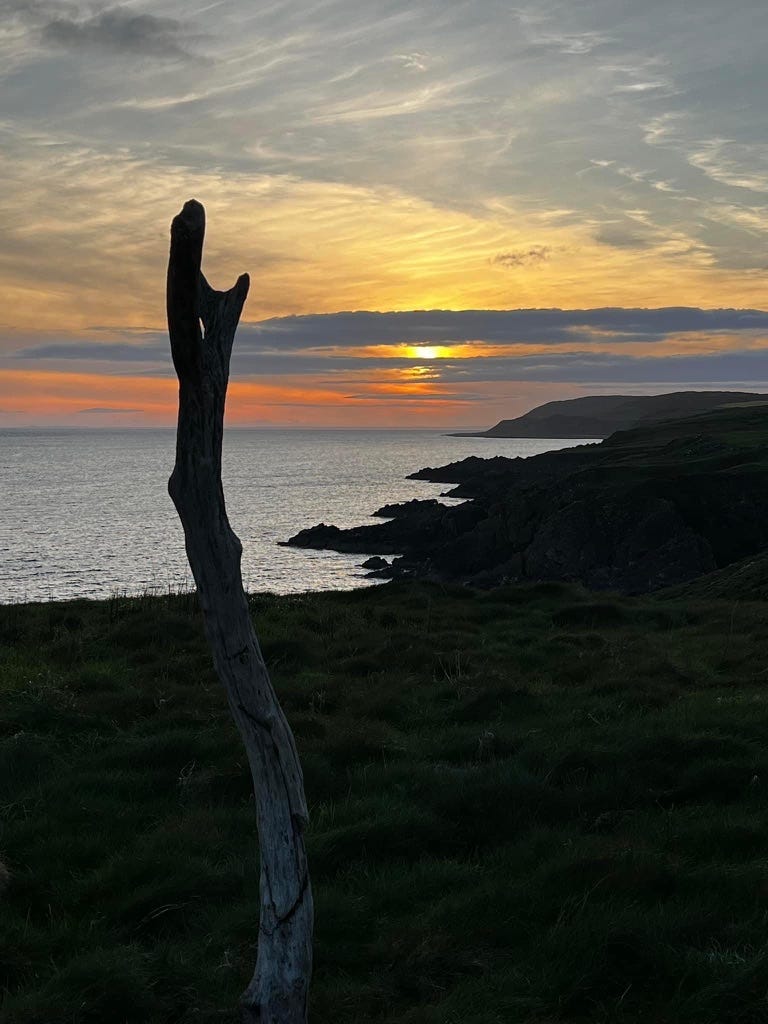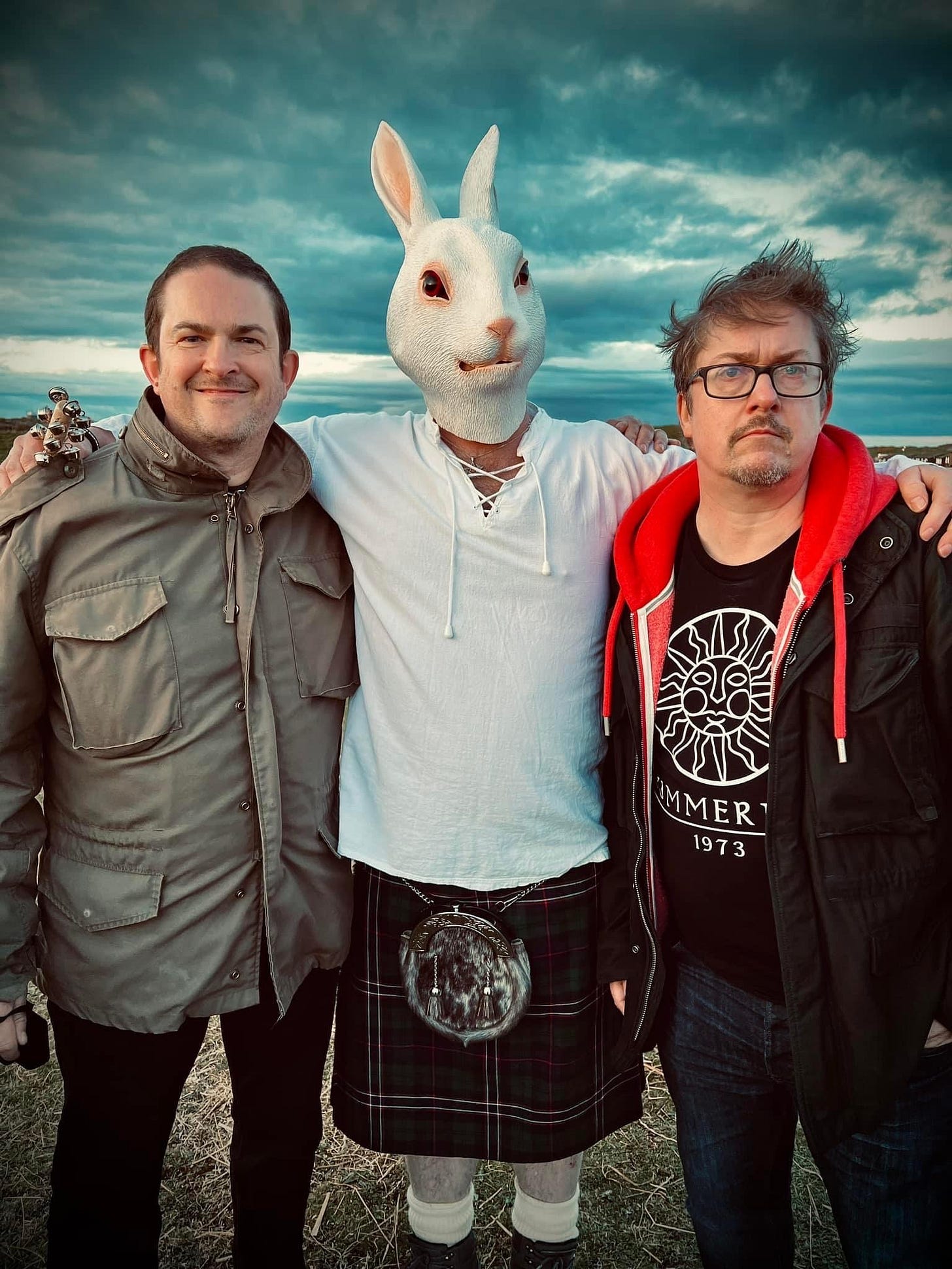"They will not fail..."
May Day, and the true meaning of folk.
It was May Day, and we had come of our own free will. We were going to play some songs. Something was going to happen, but neither my brother Alex or I were quite sure what. Luckily Alex had prepared, at least more than me. He’s a bit better at that. He’d worked out the songs, the tunings, the finger picking patterns, the arrangements. He’d even printed them in a school hymnbook, spiral-bound like the ones we had at primary school. It was a glorified setlist, but it would give us confidence. We started calling it ‘Dumbo’s feather’.
My band Candidate (or rather the two of us who could economically travel) been invited to perform some songs from the folk horror film The Wicker Man, which was 50 years old, and some songs from our Wicker Man inspired LP ‘Nuada’ which was 20 years old. Up on the Isle of Whithorn, in South West Scotland, a bunch of fans and locals were going to burn a Wicker Man on the remote Scottish headland, its legs standing on the concrete block where the film’s art director Seamus Flannery had sunk the legs of his prop, half a century before, and set it ablaze. It was fifty years in fictional terms since the original ritual, which ‘happens’ on May Day 1973, in one of the worst example of the dangers of ‘following a hippie to a second location’ ever filmed.
The invitation to perform came via a fan of Candidate, Jon Wood, part of a Facebook group of excited strangers who all thought this was a brilliant idea. They needed someone to be the band. The Wicker Man isn’t The Wicker Man without the music, as Neil LaBute found in his idiot remake.
The more we came up with dull reasons we couldn’t do it (we’re out of practice, it’s miles away, it’s too expensive), there still seemed to be a will, and immediate solutions. So we were going back to Burrow Head to watch some strangers burn a Wicker effigy and sing Sumer Is Icumen In. Then we’d entertain them with a set, and there’d be a large whisky each. That was going to be our May Day.
We met Jon for the first time on board the plane on the runway at Stansted. He nodded and smiled at us. To us, he appeared to be in charge of the event. He was going to be driving. He’s basically the tour manager, we thought. We’ve got a tour manager. That’s nice. We could just let him tell us where we were playing and when.
In the car, Jon told us none of that was true. He was nothing to do with organising the event at all.
“No. I just offered to get in touch with you guys, because I’m a fan of yours. I don’t know anyone here. Except you. And I don’t know you.”
“So. What’s going on? Who’s… in charge?”
“I don’t know. There’s a nice guy in America, who’s the world expert on the film. But he’s not here. And another fan called Ian. He’s probably the main driver of this. But he’s very shy. Lovely guy, but he would never step up.”
“Who’s in charge though?”
“There is a documentary. Directed by this Irish guy called called Fergal.”
“Oh. It’s a documentary. So should we talk to the production company?”
“There isn’t one. He’s never made a film before. It’s just him. Think his nieces are his crew. There is another documentary crew, though. Two of Robin Hardy’s sons. They’re coming up from London.”
Of course! It had to be run from London. And the actual family of the actual director of the actual original Wicker Man film were the obvious choice.
“OK. Is this all down to them? Are they filming the burning?”
“No. They can’t stay. They’re flying back to London tomorrow for the big London premiere of the new restored print. Britt Ekland. Reece Shearsmith. Big concert. They’re not staying for the ritual, or the music.”
“So… who’s in charge?”
“I really don’t know. I don’t know anyone.”
Jon was really lovely. A scientist, he’d been part of the clinical trials team who’d come up with the COVID vaccine. He’d also was a drummer, and worked for ages with Den Hegarty, the lunatic bass singer from Darts and custard-flecked Tiswas star. Jon was clearly accustomed to surfing chaos with Charlie Watts-esque calm.
We arrived in Newton Stewart, outside a beautiful old cinema. Jon unpacked a smart blazer from the boot of the hire car.
“Right. I’m doing the Q&A for the premiere.”
“Do you normally do that sort of thing?”
Jon laughed. “Nobody else wanted to. Not here. Or too shy. So I said I would.”
And we went to the premiere of The Wicker Man (restored final cut) in the small community cinema where the original film had been premiered for the local community in 1973 (to say thanks for their help). There were bagpipes, loud as a jet engine in the small auditorium. Robin Hardy’s sons were interviewed. As was the lovely, unstoppable, brilliant Lesley Mackie. She played Daisy (the girl with the beetle in her desk and the devilish St Trinian’s attitude) in the school room scene in the film. She had also done her best to teach Britt Ekland a Scots accent for the part of Willow, and sang two of the film’s most famous songs (it’s her, if you have the LP, singing the opening number, and Willow’s haunting seduction song.)
At the premiere, there was a sense that Fergal, the Irish first-time documentarian, might be in charge. He was a charismatic, energetic whirlwind, full of ideas, and fast, sort-of-reassuring answers. We talked to Wicker director Robin Hardy’s son Justin later over an after-hours curry, and he told us emphatically: a director is someone who answers everything confidently and quickly. Sometimes those things work, sometimes they don’t. You can fix most things later. But at least everything keeps moving. You keep something creative and fragile alive by answering quickly.
Fergal showed a rough assembly of his self-made documentary so far. A loving, passionate laptop movie on a huge cinema screen. A first-time director, scrabbling to find his story, on the fly. But then, so was Robin Hardy. An IT guy, Fergal spoke of wanting to leave something more than software behind. He seemed to have had a fire lit under him by his love of The Wicker Man.
The contingents from That London (the film industry directors and producers, the reckon-we’re-media-canny musicians) started to stand out. The community people – the fans, the locals – were running rings round us, just letting stuff play out. And ‘play’ was the right word. Everything felt playful. Stuff was happening. It felt organic. We made the early mistake of asking a couple of times where we should sit, what was next, who we needed to defer to. Like we’d do at an event like this in London. And then we stopped. And relaxed. And went where the events led.
On May Day itself, we woke up in a hotel by a beautiful Wicker Man harbour in Garlieston, and Jon said he’d like to drive to Anwoth Old Kirk. We’d recommended it as the best money-shot Wicker Man location to visit. The ruined church, maypole green, and Daisy’s beetly school room are in one place.
I suggested we might play a song in the ruins of the Kirk, but worried that this time, two decades later, without a manager to deal with local objections, that we might disturb somebody, or that another bunch of fans or visitors might interrupt us. But with just the sound of cows and birds, and the blazing sun, and we did half a dozen numbers, a concert for Jon alone, who’d invited us. The thing he’d wanted. He filmed us on the very nice camera he had. He volunteered without us even asking.
As we drove off, another car drew up. We hadn’t interrupted anyone. Nobody minded. We’d made music in a magical place. We hadn’t needed to ask permission. Because it was just a nice thing to do. Who’d say ‘no’ to that?
On Burrow Head, where the burning would take place is a holiday camp, of a sort familiar from our own childhoods. Air hockey, pool tables, slots, short slides and low swings, a shop full of tinned potatoes, sandwich pickle and Heinz beans, and a nice social club with a small sprung dancefloor, spindly tables and bent tube chairs. There was a brightly lit bar, like a sports and social club, that in London would serve nothing but Heineken that tastes of the stuff they clean the lines with, but here had decent whisky and proper scotch ale.
It was empty. Wayne the barman asked what gear we’d bought. Just the guitars. “Right.” Nobody had asked, or told them, what we might need. But he found a karaoke machine, some cable inputs, one working karaoke mic, and one mic stand. Which was a bit of a shock because we’re a twin vocal band, minimum, preferably three part. It covers a multitude of sins.
“Wayne, have you ever done a band’s sound before?”
“Nope. But how hard can it be? I’ll give it a go.”
We couldn’t phone anyone because there was no phone reception, no 4G, no Wi-Fi. But we didn’t need to. We sang into one mic, Beatle style. The camp’s maintenance guys eventually built us a second mic stand using scraps of rusted pole they’d found, and a bunch of cable ties. It worked fine. If they could fix Elsan plumbing, they could build a PA from scratch.
Down at St Ninian’s Community Hall, in the harbour below the headland, apparently something might be happening, so we went to have a look. Costumes or something. A contest maybe. It wasn’t clear. No wifi, No signal. Who knew? But there was some bustle and a cafe. We got some sausage rolls.
Fergal appeared.
“There are loads of people in the hall. There’s nothing for them to do, really. Would you lead a sing-song, lads?”
I really wanted my sausage roll.
“Our guitars are up on the headland. Sorry. That’s such a shame.”
Two minutes later he came back and said he’d found a guitar. There was one in the village belonging to a local called something like Hippie Dougie.
“It’s beaten up. He says it’s got most of the strings. But you can use that, right?”
“We need two guitars though,” I said, using my best London, ‘Sorry, this isn’t going to work, guys,’ voice.
Fergal went to find a second guitar in the village.
We had made a mistake. We’d said ‘no’. So we said ‘yes’ instead.
Jon ferried us back and forth and we brought down all our kit, perched on the edge of the village hall stage, and fifteen minutes later, we were leading a village hall full of fans and locals in communal singsongs from the film. We ran out of tunes. They gave me a printed booklet of the words for the song I said we didn’t know, so now we knew that one.
Never say no. Never.
We had made music ever since ‘Nuada’ which people had said was ‘folk’ music, or ‘folk’ adjacent. Which meant harmonies and acoustic guitars. We played ‘folk’ festivals sometimes. But this was a real folk festival. A festival made by folk. By people gathering in a community just big enough not to splinter into chaos and need too much control. The ideal size. We were performing songs people knew already, for them to join in and fill the parts we didn’t know. We were, for the first time, folk musicians.
We got our first hint of who the audience might be. There were probably forty people maximum. That’s enough for a procession, and a little gig. And we got to meet Amy, who had played the baby in Anwoth Kirk in the film (with her mum and the egg). She read a beautiful poem in Gaelic, and got a gift of a beautiful ceramic egg. She was as nervous as we were, but we were all starting to feel this might be OK. Because there wasn’t any reason for it not to be.
Later, back at the camp, we ran through our set through the karaoke machine. It sounded great. I’ve played far worse, less musician-friendly venues. And this time I could take a back seat for the hardest song, and we had the actual lovely Lesley Mackie, from the actual film, singing Willow’s parts. The first time we’d all done it together. She was nervous. We said we’d follow her lead. She was beat- and note-perfect. As campers and staff and people milled about and chatted, and Lesley’s crystal voice hovered and shimmered above the two guitars, I don’t think I’ve been much happier ever.
Gradually, a crowd gathered. Some of the faces from earlier. Animal masks. Horns. Suns. Flowers. Kilts and floral dresses. One fan, dressed as Lord Summerisle, who’d won the costume contest earlier, for his sinister ritual Teaser get-up, was now in his yellow jumper, bleached Ken Dodd wig and tweeds. There were a crowd of lovely Wiccans who were done up to the nines. It was their big day. Witch Christmas. It wasn’t a fake religious ceremony from a film. This was a real one.
A drum appeared. Jon was given it to beat and lead the procession. Alex and I noticed that he hadn’t brought it in his cabin baggage. Maybe he hadn’t even known he was going to be the procession drummer. I mean, he was a professional touring drummer. It was perfect. Was it by chance? Anyway now he had a drum. This was going to work.
Then it dawned on me. Jon’s drum was an Irish drum. So it must have been bought here, probably by Fergal, for his film. The procession wouldn’t work without it. Even though it felt like nobody was in charge, everything was always in place for whatever was needed. Just because there were always answers, everywhere. Like a film director needs. Quick answers. Whenever the answer might be no, the answer was yes instead. Here. Use this. Why don’t you do that? How about this?
It was like being in a colossal improv group. ‘Yes and… Yes and… Yes and…’ No blocking. No stopping. No ‘no’.
But this wasn’t a music festival, or a summer fete, or even a wedding. You know how stressful and micromanaged the average small wedding is? How tense? How on-rails? How there’s an edge that unless everything is in exactly the right place, it will be a disaster? They make television programmes about it. Nothing like that. And yet it was the size and intricacy of the biggest weddings I’ve ever attended.
This was a sort of event I’d never been to before. Something focused, but spontaneous. Not an organised festival, but one that, if you were right in the middle of it as a guest, seemed to have organised itself. And it only felt that way thanks to endless, hard, skilled effort, by everyone, individually. This was a community of strangers who had become a community, after barely exchanging a word. At the moment the calendar reached May Day, the pieces were all within reach. The fact that a local artist had made a colossal wicker statue? That was arranged. Of course. But it didn’t feel that way.
A village was forming. And it would know what to do.
Without it even seeming to be announced, a crowd appeared on the path to the headland. Much bigger than just the people we had expected from the village hall. Locals, holidaymakers, fans, staff… Taking the lead, the most remarkable costumes. Witches and Willow. Animal masks. A stag-headed swordsman. And people in anoraks. Laughing children. And Lord Summerisle himself, but not at the front, lost in the crowd. Just another fan. Another participant. Because today, the community didn’t need a leader. It functioned without one.
There were TV crews as well, I noticed after a while, but unlike most events where the media buzz in, they weren’t intrusive one-more-with-a-smile wedding photographers, wrecking the rhythm of the event. They’d been invited by a hard-working local PR woman, but their presence felt celebratory, not disturbing. The village put them gently in their place. They were just observing. And of course Fergal’s crew, his family sound and camera team, were different. They were villagers too, so they were right in the throng. The outside media were welcome to observe the ritual, but not disturb it.
And the sun shone. Long magic hour shadows lit the faces of the people who had come to perform a May Day fire ritual that we realised was no longer a fan re-enactment or a cosplay game. It was the actual event.
Not the event staged for the film fifty years ago, even. Instead this was the purposeful village ritual, that Robin Hardy and Anthony Schaffer were conjuring and simulating in their fiction. But it was about to happen for real. An impromptu Dunbar number gathering of genuine locals and people who had travelled from all over the world – an act of hopeful pilgrimage to feel something, to be part of a temporary community, to agree that this was a thing that needed doing.
I’d seen these things on telly before. I’ve sneered at the fancy dress. The hippy bullshit. The woo. I’m clever and cynical. I’m in a band. I write comedy and take the piss out of things, for money. I have disapproved strongly, over pub tables, of the yanks nicking my favourite clever horror film about the dangers of belief and certainty for their burning man fancy dress bullshit. But suddenly… no…
There was an electric buzz up the crowd. I mean, deep down, it’s only bonfire night. But who doesn’t love bonfire night? And why do it in the dark? The sun god is up there on the headland, and he’s going to put on one hell of a show. A community spring ritual. A real one. I like Cadbury’s Mini Eggs more than most, but this was clearly going to piss on Easter.
So Alex and I joined them. Because we weren’t up here from outside, like the TV crews. It was our village too, now. We’re the band. Just like Paul Giovanni and his students from the Royal College of Music in the original film. You saw us earlier. In the alcove at the Green Man. You’ll see us again, at the ritual, just like you can recognise them up on the headland in the film. The pub guys.
But also, we weren’t just Magnet, the indie-folk band hired to play the village band in a film. We were the actual band from the actual village. Those musicians the village knew from St Ninian’s hall. Who did the songs earlier, on demand, when the village needed some reels and capers. The locals knew us now. We’re the entertainment. So we can join in.
We were in the village now.
There were boundary ropes around the fire, probably at the insistence of whoever had given permission and said ‘yes’ instead of ‘no’ at the council. The moment it was lit, the crowd stepped over them, cautiously, to get closer. A few loud voices said “Take care, we are on the edge of a cliff,” but everyone was already being careful. It’s only a village. It’s not a festival. Nobody is going to rush or push. There were enough people, not too many.
There were attempts to re-enact the climactic singing from the film, but it was fragmentary and only a few people joined in. That surprised me but then I realised it wasn’t a load of film fans, word perfect. It was everybody. It was now a chaotic, genuine ritual, not a staged re-enactment.
The only song came from the Wiccans. When Sumer Is Icumen In failed to spread through the crowd, they burst into a powerful, passionate song to the Goddess, because it’s a spring festival, and that’s what we do when the village has a colossal ritual bonfire on May Day. We all stood back and let them bellow. It was magical. Literally. And whatever they did pleased the sun. Because it burned on the horizon like it did in the film, blazing into everybody’s cameras and sending up ghostly balls of lens flare to make every snapshot look like it had a cinematographer behind it.
Alex and I both had the same thought at the same time. That if the film were set in 2023 rather than 1973, the only difference would be that everyone in Summerisle would have their cameraphones out, to film the bastard go up, and capture their costumes as they killed a policeman.
There was no policeman inside the fire, luckily (as far as I know), but otherwise this was the same event that the film re-enacted. We did this, because we were a village that does this, without even feeling anyone had decided we would. That nobody had organised it was an illusion, though a persuasive one. The Wicker Man hadn’t erected himself, no matter how much he thought of the Landlord’s Daughter. But it felt like we’d made it happen together. By not being told where to stand, what to do, when things would happen, we were allowed to feel like adults, not children. And then to play. As adults. Grown ups. Not frightened children who might be naughty, or get hurt, or get in trouble. It’s what unsettles Sergeant Howie, that the islanders are grown up naughty children, and the children are naughty grown ups. And that feeling of freedom was wonderful. And we sang, and marched, and we watched him burn.
Lockdown and COVID, the pandemic that our new friend Jon and his scientist colleagues had helped tame, had splintered us into small villages of our families, our immediate neighbours. It had been a long time since I had gathered with strangers and made a new village together. Several people mentioned this. We’d missed it. Humans need the village as much as we need family. And we need to form our village by saying ‘yes’, and not ‘no’.
The last time I was at a ‘magical’ ritual ceremony anything like this was the Thaxted Morris Weekend in Essex, which I’ve been to a few times. It ends with the Abbot’s Bromley Horn Dance, and a procession down the hill of the village, in darkness, featuring many of the figures from the Wicker Man’s ritual – the teaser, the fool, the Oss. It chills and haunts, as if you are inside a collective dream. Children pop their heads out from upstairs windows to watch, just like they do in Robin Hardy’s folk horror film. These are shots he borrowed from Oss Oss Wee Oss, Alan Lomax’s 1950s documentary about one of these actual rituals happening in Cornwall. When the procession happens at Thaxted, the market high street, drunken, sunburned and deafening one minute, is suddenly hushed. Everyone holds their breath. You are subsumed inside a community of strangers, part of a temporary village. It’s not ‘staged’. It’s natural. At these events, a single focus is provided – music, dance, or a spectacular bonfire – and everyone seems to know what to do, to play their part.
And later, when we had come down off the headland, and the 50th anniversary Wicker Man up on Burrow Head was nothing but a circle of ash, and we played our set in the social club, by the bingo machine and bag of ping pong balls, to a bunch of strangers whom one by one took off their animal masks and revealed they were fans of the band or fans of the film or just local people having a lovely time, it was the most engaged and magical show we’ve ever done.
We backed Lesley Mackie on one of the most beautiful film songs of all time, and she was sensational. The air seemed to freeze, and a chasm of time from 1973 to 2023 concertinaed to nothing. And the night ended up with a spontaneous ceilidh to one of our own most obscure tracks, one I’d considered not playing, because it was getting late, and surely nobody wants that one. But they did. And then encores. Including the song we don’t know the words to, cued by a fan in the crowd miming them to me with her hands so I could guess the next line, and a rowdy Landlord’s Daughter, everyone slightly drunk and doing the filthy actions, in a bar that for that night wasn’t a re-enactment of The Green Man pub in The Wicker Man. It was the Green Man. And we were the band.
And it all happened because nobody seemed to really be in charge, authority was released, there was a proper atmosphere of misrule that is essential for May Day revels, and totally absent from every festival I’ve ever been at. I hate most festivals. I hate being given wrist bands that tell me where I can and cannot go. I get a feeling of the first day at a new school, like I do at airports, like everyone knows where to go and what to do, what the rules are, how to behave, and how to have fun, and I don’t know yet. I feel no joy in a big crowd the size of a town, powered mainly by FOMO, who all knew when to go online and buy tickets. Plus there’s the anxiety that I’ll get something wrong. A blend of upbringing and type of brain make festivals No Fun At All. They are Not For The Likes Of Me. I do not belong. Worst of all, there are strict terms of ‘no’, and they are coming down the track with the stern authority of Sergeant Howie taking control of the school lesson, and telling off cheeky Daisy and Miss Rose for their godless games.
But here, in the instant village, nobody said ‘no’. So everybody was able to say ‘yes’.
As we packed up, I spoke to the bar staff. They’d love to do it all again. They should do. This community needs the tourists. It’s a great night for them, celebrating a beautiful part of the country. But as soon as someone organises this, as soon as it’s more than a natural village, it won’t really be happening again. It can’t. It’ll be too big to allow the chaos that makes it happen without it feeling like someone needs to be in charge.
Because once a village becomes a town, people have to start saying ‘no’. People like councils, and authorities, and film directors, and policemen. They have to tell the town what it can’t do, because a town can hurt itself in a way that a village can’t. A village looks after itself. It functions by saying ‘yes’. I can fix that. I’ll get you one of those. I’ll give that a go. Let’s try. Maybe this’ll work.
I live and work in the media, and in London. My life is non-stop ‘no’. I work at the whim of gatekeepers. I create (yes) and get notes (no). There are accepted standards. Rules. Habits. Authorities. There are people who know how things are done properly. I live in a world of the occasional ecstatic ‘yes’, but mainly a constant cautious ‘no’. Creative mates gather and moan about the relentless ‘no’. It’s all we talk about. I go to industry events where all the creatives (the yes people) tend to be in a lower social status than the commissioners and executives (whose job, they often complain, is mainly saying no). We respect no people, and reward them with high salaries and respect. The yes people are funny and silly and chaotic and probably need to be told to calm down. I used to have a BBC pass, an institution that manufactures ‘no’ in industrial quantities, and is mainly about making sure that nobody runs up to the bonfire on the cliff edge, or plays songs they don’t really know into karaoke machines for a crowd of witches and drunk people dressed as owls.
But I just spent two days in a village that only said ‘yes’. And I am having trouble coming down. It was like having a bath in May Day dew. I feel reborn.
It was quite literally magic.
So, thank you to everyone in the village who made it happen.
Our band Candidate are on Bandcamp here, where you can hear and buy our music:
We have a new album out in October and a digital single out very soon.
Stream us via the usual places if you stream stuff. Remember, like all musicians, we don’t get paid this way. Bandcamp is always nicer. If you do like what you hear, please help us make music by buying your favourite records, like in the old days.
Social media announcements of forthcoming gigs and releases via Twitter and Facebook if you follow us here:






